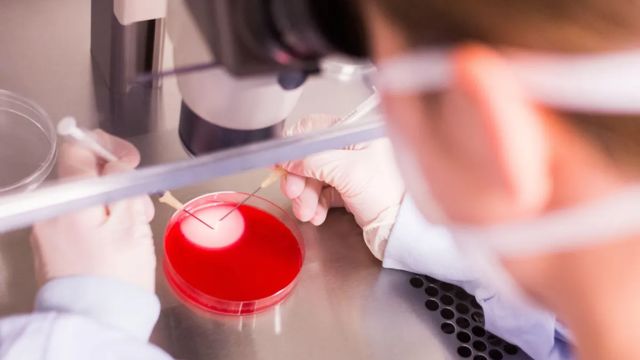Alabama made history last week when it decided to recognize frozen embryos as children. The California Supreme Court declared that embryos are children “without exception based on developmental stage, physical location, or any other ancillary characteristics” in an 8-1 ruling. The ruling resulted from charges of wrongful death following the unintentional destruction of embryos kept at an IVF facility.
The decision has had a ripple effect across the country. Some have wrongly claimed that Alabama effectively outlawed IVF, while others have warned that the decision will be used to push for state legislation outlawing abortion. For those of us who think that life begins at conception, the ruling is indeed reason for celebration. It will also initiate long overdue discussions concerning the embryos that are generated and then destroyed in the process of trying to conceive.
IVF raises some of the same moral issues as abortion, specifically that life is seen as disposable due to its early stage of development, despite the pro-life movement’s near-exclusive focus on abortion. A pregnancy is terminated in an abortion; a new life is created—often to be destroyed—with IVF.
This tension is very pertinent to me as a Catholic who has had difficulty becoming pregnant. I was forced to adhere to the teachings of the Catholic Church despite my protracted battle with endometriosis, which at one point fused parts of my internal organs, because I was aware that the church did not support intermarriage. I eventually became pregnant after addressing the underlying cause of my infertility.
Of course, many others have different results from mine and are so desirous of having children that they are prepared to pay for IVF despite its high cost and unpredictable results. Furthermore, many churches have a more nuanced perspective on IVF than I do. Some believe that only a husband and wife should undergo the operation, while others believe that clinics should only generate the precise number of embryos that will be implanted.
In the Alabama case, three families had stored frozen embryos; however, due to clinic personnel misconduct, the embryos thawed and eventually died. The impacted families filed a lawsuit because there was now no means for them to get their losses back. The Supreme Court decided that embryos, like unborn fetuses, can be deemed children for the purposes of wrongful death proceedings, opening the door for those families to seek compensation for their loss, even if lower courts had sided with the fertility facility.
Following the ruling, Alabama’s biggest hospital declared it will stop doing IVF treatments. Nonetheless, a physician from Alabama told The Washington Post that she anticipates the medical community and policymakers would collaborate to “carve out a middle ground that allows IVF treatments to continue.” On Friday, The New York Times revealed that these talks have already begun. Additionally, there are alternatives that don’t entail destroying or storing embryos permanently, like altering the way IFV facilities run or adopting embryos.
Those of us who oppose abortion think that every human life, from conception to natural death, is endowed with inherent dignity and value. Numerous political debates ranging from abortion rights to the death penalty, welfare and health care to food programs and education are entangled in that belief. Since the first artificial reproductive technology (IVF) baby was born in 1978, this practice has been discussed.
In 2012, Pope Benedict shared his thoughts on the effects of in vitro fertilization, highlighting issues like as the potential for designer kids, the commercialization of children, and the complete annihilation of non-human life. However, this is not solely a Catholic viewpoint. Southern Baptist Theological Seminary president Albert Mohler Jr. applauded the court decision this week in his podcast, expressing his hope that it “will prompt a lot of moral thinking.”
The difficult part is that a lot of people who identify as pro-life have chosen not to apply their own reasoning to the serious moral dilemma that IVF treatments present. Ultimately, the question that needs to be asked is whether or not pro-lifers actually believe what they say. Do we actually think that fetuses are children? If not, we have been deceiving both ourselves and other people. However, how are we to reconcile this with the reality that millions of frozen children are locked in an irreversible state and are going to be destroyed as a result of IVF treatments? stated Mohler.
IVF has always been somewhat of an undertone for those who oppose abortion because, let’s face it, many of the same individuals also desire large families, and if you’re having difficulties conceiving naturally, IVF is a means to expand your family. About 2% of kids born in the United States were conceived by in vitro fertilization (IVF), therefore the consequences of its use are often taken for granted, despite the fact that they are rather serious.
Not simply from a Catholic standpoint, the Alabama court made the proper choice in its ruling. As more couples choose IVF and create extra embryos, we need to consider how to care for those unquestionably human offspring. The Alabama Supreme Court has deemed this crucial discussion urgent.

